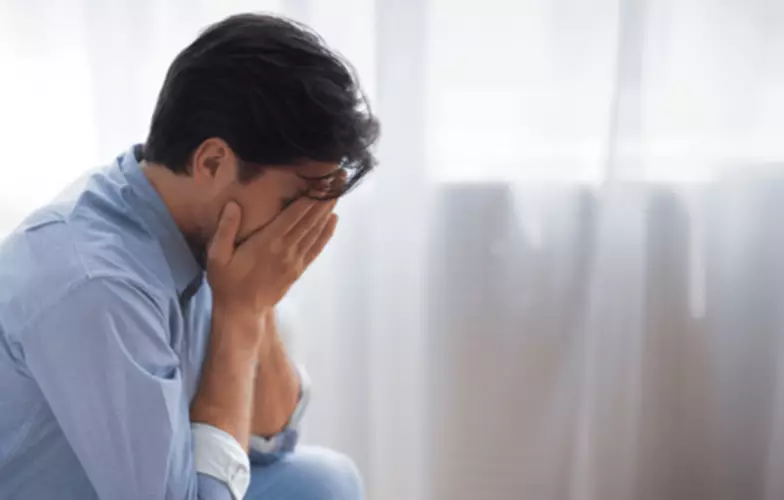If you binge drink alcohol, your depression and anxiety may also worsen. Binge drinking is when you drink a lot of alcohol in one day — more than 8 units of alcohol per day for men and more than 6 units of alcohol per day for women, with 1 unit of alcohol being equal to half a pint. While problematic alcohol consumption has likely occurred as long as alcohol has existed, it wasn’t until 2011 that the American Society of Addiction Medicine recognized substance addiction as a brain disorder – the same year as Winehouse’s death. A diagnosis of an alcohol use disorder is now used over outdated terms such as labeling an individual as an alcoholic or having alcoholism. The National Alliance on Mental Illness (NAMI) offers education and support for patients and families affected by mental health disorders. “It helps to learn that you are not alone, that other families also have issues and to encourage loved ones to stay in treatment,” Dr. Anand says.

International Patients
If you’re having suicidal feelings, you can call Samaritans free any time. Call 999 or go to A&E if you’ve hurt yourself or think you might act on suicidal thoughts. In the short-term, drinking too much can lead to alcohol poisoning, sleep problems, an upset stomach, bloating and migraines. It may make you behave recklessly or aggressively, have an accident or become the victim of violence. Alcohol is a depressant, which can disrupt the balance of neurotransmitters (chemical messengers) in your brain and affect your feelings, thoughts and behaviour.
- Alcohol can make you more likely to be depressed, and being depressed can make you more likely to drink alcohol.
- As hangover symptoms begin to subside, the emotional effects may follow.
- A therapist or recovery coach can help you learn new ways of managing cravings and difficult emotions, while joining a group can make you feel less isolated.
- For one thing, treatment with acamprosate requires patients to take six pills per day.
- Alcohol also slows down how your brain processes information, making it harder to work out what you’re really feeling and the possible consequences of your actions.
Effects of alcohol when you have depression
As you drink more, you become intoxicated and unsteady, and you might do or say things you normally won’t. If you’re still experiencing symptoms of depression after a few weeks, the NHS advises you to contact your GP surgery. A good way of keeping track of how much you’re drinking – to help spot patterns, avoid your triggers and stay within the low risk drinking guidelines can alcohol make depression worse – is with the MyDrinkaware app. Signs to look out for include things like continuous low mood or sadness, feeling hopeless and helpless, having no motivation or interest in things, and – for some people – thoughts about harming themselves. That’s why your doctor or psychologist will work with you to create a treatment approach that addresses both issues.
What is alcohol abuse?
It’s not uncommon to use alcohol to cope with difficult feelings and experiences. It’s very important to address both alcohol misuse and depression simultaneously when looking into treatment options, as these conditions are closely intertwined and can exacerbate each other, Kennedy explains. Depending on your intoxication level, you may experience decreased https://ecosoberhouse.com/ inhibition, loss of judgment, confusion, and mood swings, among others. By Sarah Bence, OTR/LBence is an occupational therapist with a range of work experience in mental healthcare settings. If you have depression and drink too much alcohol, then you may be wondering if there are any treatments or lifestyle changes for someone in your situation.
Here’s Why You Feel Depressed the Day After Drinking – The Healthy
Here’s Why You Feel Depressed the Day After Drinking.
Posted: Mon, 27 Jan 2020 08:00:00 GMT [source]
Effects of Alcohol Use
The authors advocate for the routine assessment of alcohol use, beyond questioning to diagnose alcohol abuse or dependence, in psychological and psychiatric settings. There is reason to believe that once identified, heavy alcohol use among depressed patients could be addressed effectively through the use of brief motivationally focused interventions. Mutual-help groups also can be effective elements of treatment for co-occurring AUD and depressive disorders.
Alcohol disrupts your sleep
- The next day, as these neurotransmitters return to their usual levels, you may feel depressed for a day or so.
- Bad sleep can easily affect your mood the next day, since exhaustion and lingering physical symptoms can make it tough to concentrate.
- As a result, you could drain your bank account, lose a job, or ruin a relationship.
- Binge drinking is when you drink a lot of alcohol in one day — more than 8 units of alcohol per day for men and more than 6 units of alcohol per day for women, with 1 unit of alcohol being equal to half a pint.
- Her blood alcohol concentration was 0.416%, more than five times the legal intoxication limit in the U.S. – leading her cause of death to be later adjusted to include “alcohol toxicity” following a second coroner’s inquest.
- Depression is different to anxiety (a feeling of worry or fear about what might happen, inability to concentrate and – for some people – panic attacks).
If you drink regularly to manage depression symptoms, it may have be beneficial to work with a therapist who specializes in treating co-occurring depression and alcohol use. If you feel depressed even when you don’t drink, or you drink because you feel depressed, it’s best to reach out to a mental health professional. The Centers for Disease Control and Prevention has found that 9 out of 10 adult binge drinkers don’t have a severe alcohol use disorder, but that doesn’t mean alcohol isn’t a problem for them. Drinking to cope with depression, no matter if you have an alcohol use disorder, is concerning. Over time, your brain’s reward pathway builds tolerance and requires more and more dopamine (via alcohol) to feel pleasure.
- You came to this page because you wanted to know about the relationship between alcohol and depression.
- If you wake up feeling miserable after a night of drinking, you don’t have to wait it out.
- Ria Health offers evidence-based treatment from an app on your phone.
If you are feeling sad or low for an extended period of time and it has affected your ability to function, you may be experiencing depression. There are other issues not mentioned here that can also affect your mood. Examples include pre-existing health conditions, medications you may be taking or other substances you may be using. If you’re worried about drinking or feel it’s affecting your mental health, a lot of help is available. Regularly drinking a lot of alcohol can cause or worsen symptoms of depression. Self-medicating by drinking more alcohol to try and numb or mask depression can also make your symptoms worse.
